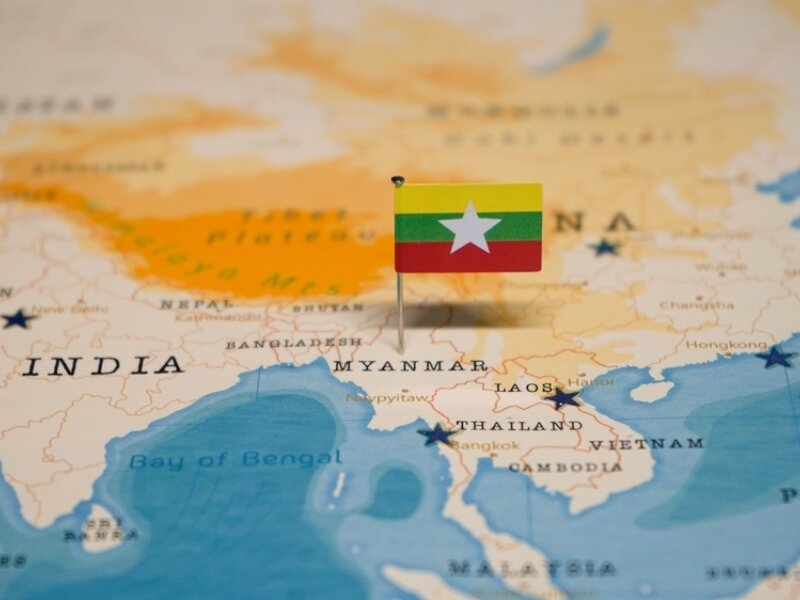Tensions in Central Asia: the unresolved conflict between Kyrgyzstan and Tajikistan
During the Shanghai Cooperation Organization (SCO) summit, new border clashes between Kyrgyzstan and Tajikistan took place. From the Caucasus to Central Asia, tensions are rising again in some post-Soviet countries

Beyond any circumstantial rhetoric, the SCO summit held on 15 and 16 September in Samarkand did not show any special cohesion among the heads of state or government of its member states: Uzbekistan (the current chair), Kazakhstan, Kyrgyzstan, the Russian Federation, Tajikistan, the People's Republic of China, India and Pakistan. Nor did the summit appear useful in promoting a desirable post-war peace treaty for the Karabakh region, between Azerbaijan and Armenia – notwithstanding the presence of Turkey, invited as special guest and possible future SCO member. Ebrahim Raisi – appointed President by Iran’s Supreme Leader Ali Khamenei – instead, saw the Islamic Republic graduate from the status of observer to member of the Organization. By this move, the country aims to play a greater role on the east-west axis, which connects China to Europe through the Caucasus and the Caspian Sea, and on the north-south axis, which connects the Persian Gulf with the Baltic through Russia. However, shortly after his return to Tehran, President Raisi found himself facing widespread revolt in all sectors of Iranian society.
Above all, during the summit it became clear that at this stage the Russian Federation is unable to exert a decisive influence in the affairs of Central Asia and the Southern Caucasus. After the withdrawal of Russian forces from different areas of Donbas due to the Ukrainian counter-offensive, Russian President Vladimir Putin, faced with a difficult economic, social, diplomatic and now military situation, was openly invited to end the war by Indian Prime Minister Narendra Modi and did not find support either from Chinese President Xi Jinping nor from his Turkish counterpart Recep Tayyp Erdoğan. The latter, as well as the President of Kazakhstan Tokayev, then made it clear that he will never recognize the annexation of Ukrainian territories to Russia. A few days later, the spokesperson for the Chinese Foreign Minister Wang Wenbin clearly stated that “the sovereignty and territorial integrity of all countries must be respected, as well as the UN Charter and principles”. For his part, the day before going to Uzbekistan, Xi Jinping stopped over in Astana for a bilateral meeting with Tokayev, declaring his support for the territorial integrity of Kazakhstan. The reference here was to possible Russian claims, made in the past by both President Putin and former President Dmitry Medvedev, on the provinces of northern Kazakhstan, where a substantial Russian ethnic minority still remains.
During summit, which saw Tajik President Emomali Rakhmon (in power since 1994) meet with his Kyrgyz counterpart Sadyr Japarov, violent border clashes took place between their two countries, with the use of mortars, missile artillery, tanks and attacking drones causing over a hundred deaths, thousands of injuries, the destruction of hundreds of residential buildings and the displacement of tens of thousands of people, before a ceasefire came into force. However, a ceasefire may not be sufficient to resolve a dispute that frequently re-emerges. After the last flare-up in April 2021, both sides should have withdrawn heavy weapons from the area, but the opposite seems to have happened. In an ongoing arms race, in recent years, Kyrgyzstan has purchased Bayraktar TB2 drones from Turkey, while Tajikistan has announced a plan to manufacture Iranian military drones. The two countries – both of which host Russian military bases – are members, in addition to the SCO, of the Organization for Security and Cooperation in Europe (OSCE) and of the Collective Security Treaty Organisation (CSTO), a Russian-dominated military alliance of six post-Soviet era states. However, none of these is currently capable of carrying out effective peacekeeping operations in a region where borders, including with contiguous Uzbekistan, were artificially established in Soviet times. The enclaves thus created gave rise to strong contrasts between ethnic and linguistic groups competing for agricultural land, pastures, water resources and scarce job opportunities.
On 17 September, upon returning to Bishkek from Samarkand, Kyrgyz President Japarov declared, in a speech to the nation, that Kyrgyzstan will never give up any disputed land. On 25 September, speaking at the UN General Assembly in New York, Tajik Foreign Minister Sirojiddin Muhriddin, instead, accused Kyrgyzstan of violating the terms of the ceasefire and said that responsibility for any resumption of the clashes would squarely fall on Kyrgyzstan. On the same day, the heads of the security services of the two countries signed a protocol according to which the respective armed forces should withdraw from four border posts close to the places of the latest clashes. However, many inhabitants of the Kyrgyz villages involved have contested the agreement, fearing that it may pave the way for raids by the Tajik side.
To aggravate the situation, with about a third of the population living below the poverty line and due to the Ukraine war and related sanctions on the Russian economy, in recent months, tens of thousands people previously working in Russia have returned to their countries of origin in Central Asia. Remittances from abroad probably account for 30 percent of the GDP of Kyrgyzstan and 50 percent of that of Tajikistan. In 2021, about 2 million Tajiks (at least one fifth of the total population of Tajikistan), 750,000 Kyrgyz and 2 million Uzbeks worked in Russia – a country facing a sharp demographic decline. Especially in the last days, after Putin's announcement of a “partial mobilisation”, many Central Asian immigrants are being offered enlistment with the Russian armed forces in exchange for a relatively high salary and the possibility of obtaining Russian citizenship. The governments of Tajikistan, Kyrgyzstan and Uzbekistan and their embassies in Moscow then issued press releases reminding their citizens that participating in hostilities in foreign countries would be a crime, punishable by years in prison.



